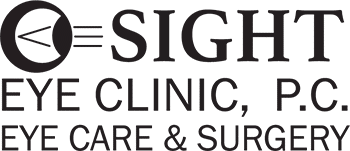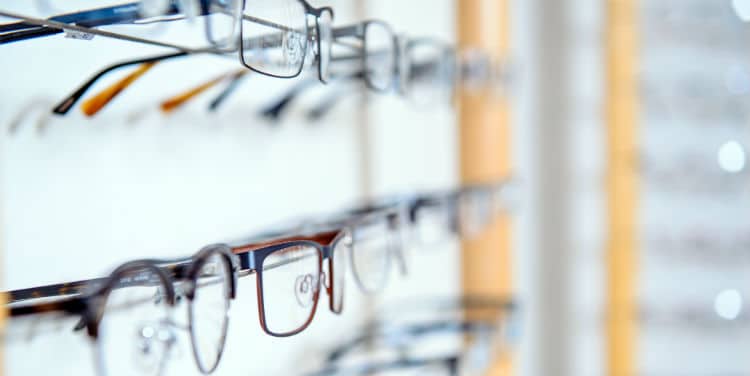Why Does My Eye Prescription Change?
Change is constant. Landlines are disappearing, nobody does the Macarena anymore, and eventually cars might all drive themselves around. And then there are bodies.
Our shoe sizes change. Our belt sizes (can) change. And, in many cases, our eye prescriptions are prone to change.
If you or a loved one keep needing new glasses or contact lenses every few years or so, it’s only natural to wonder what all might be going on to cause this. There are multiple reasons why prescriptions can change—and many of them don’t involve your eyes becoming “worse.”
Let’s start by getting one myth right out of the way.
Is it My Current Lenses?
A persistent belief is that the act of wearing prescription lenses in itself is going to make your eyesight worse over time. You need lenses. You get lenses. Then your prescription has to change, and then maybe change again after that. There has to be a connection, right?
No, we are not running a racket here. Wearing glasses or contacts does not make your eyes weaker and more dependent on stronger and stronger prescriptions. All that lenses do is redirect the light that is coming into your eye, adjusting to an already existing abnormality. The light hits the correct spot, allowing your eye to properly process it into a clear picture of the world around you.
This correction doesn’t make your eye weaker; otherwise, every normal eye would gradually grow weaker by having light hit the back of it correctly!
If you think toughing it out without lenses is going to make your eyes stronger again, you’re only going to give yourself a headache from eye strain. Speaking of which…
Does Eye Strain Make My Vision Worse?
Eye strain, such as the type that comes from staring at a computer too long or trying to read in the dark, may cause temporary blurriness in your vision, but has not been connected to permanent damage that would require a change in prescription.
Still, why subject your eyes to such discomfort? If your eyes feel tired, dry, itchy, or (sometimes) watery while you work or read, adjust your lighting or take breaks every 20 minutes or so to give your eyes a break.
So, What DOES Cause Prescriptions to Change?
For many people—especially our younger patients—a changing prescription is all part of growing eyes.
When you are born, your eye is about 80 percent the size it will be when you become an adult. As our eyes grow larger, the way in which the eyes refract light onto the retina can change.
Many children can start out farsighted. As their eyes grow, their near vision gradually improves. Ideally, there is enough of a far-sighted “buffer” starting out so that an eye has perfect vision once it stops growing.
However, in some cases there is either too much or too little of a buffer starting out. If there is not enough of a buffer, the way in which light refracts on the eye can start to swing the other way, causing near-sightedness. Otherwise, a child can remain farsighted.
We prescribe lenses for children once we discover the need for them. In many cases, this is well before the eye has stopped growing. As it continues to grow, the need to adjust the prescription will naturally change with it.
Most people’s eyes will stop growing between the ages of 18 and 21, which is when you tend to see the needs for most changes in prescription tapering off.

But I’m Older than That and STILL Need Changes!
Aging really is a double-edged sword.
Although our eyes will stop growing right around adulthood, our bodies can still undergo some changes as we age. One of these changes involves a loss in elasticity.
Now, we probably don’t have to tell you that a loss of elasticity is something that affects much more than your eyes. But when it comes to your vision, elasticity plays a big role in the ability of your eyes to finely focus.
The lens of the eye is not a static object. We contract or relax our eyes in order to make the lens thicker or thinner, allowing us to focus on things up close or far away. It happens so quickly we almost never notice it—just another small marvel of life!
As we lose elasticity, however, the ability of our eyes to auto-focus begins to diminish as well. This is where reading glasses or bifocals tend to come in, but it may influence a standard prescription as well.
Keep Up with the Changes
Change is not always good, but Sight Eye Clinic can help you adjust to them whenever needed, keeping your vision and focus right where it should be.
And even once your eyes stop growing, you should not ignore periodic vision checks after you reach adulthood. Even if your prescription is still perfectly fine (and we hope it is!), a standard exam can also identify early signs of other problems such as cataracts and glaucoma.
Schedule an appointment at our Zeeland office by calling (616) 772-2020. We’re always happy to accept new patients of all ages! If you have any questions or would prefer to contact us electronically instead, please don’t hesitate to fill out our online contact form.

